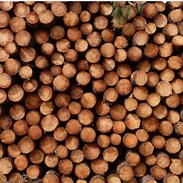
If a tree falls in the forest and no union is there to harass the family-run logging company that cut it down, does the injustice of it all still make a sound? That’s one of the questions animating Sometimes a Great Notion, Ken Kesey’s brilliant 1964 novel. On a more intimate level, there are also the family dynamics of two half-brothers, a dozen years apart, who haven’t seen each other in a dozen years. Can they get beyond past hurts and ongoing miscommunications?
Using a sometimes rapidly shifting point of view, Kesey provides glimpses of many of the colourful characters that people the fictional Oregon town where the action takes place: the bartender, the owner of the failing movie house, the local whore, the doctor, the union leader. At other times, we are treated to scenes involving the two Stamper half-brothers in which point of view alternates from one to the other, challenging us to sympathize with both men as they persist in misunderstanding each other. The story shifts seamlessly not just from character to character, but between past and present, fleshing out the backstory for the Stamper family and other main players.
And always in the background, there is the verdant Pacific forest, lush and moist, supporting all manner of wildlife and providing the raw material for human industry. There is the powerful river that carries fallen trees to the mill and also eats away at the shore, threatening to swallow up any houses built too close to water’s edge. There are the Canada geese honking overhead, fleeing the approach of winter by heading south for warmer climes.
If you want to lose yourself in a rich, engaging, multidimensional story, you could do a lot worse than Sometimes a Great Notion, Kesey’s epic second novel. Reading it has made me want to revisit his first and more famous work, One Flew Over the Cuckoo’s Nest, which I read a long time ago, and check out his later work as well.
And always in the background, there is the verdant Pacific forest, lush and moist, supporting all manner of wildlife and providing the raw material for human industry. There is the powerful river that carries fallen trees to the mill and also eats away at the shore, threatening to swallow up any houses built too close to water’s edge. There are the Canada geese honking overhead, fleeing the approach of winter by heading south for warmer climes.
If you want to lose yourself in a rich, engaging, multidimensional story, you could do a lot worse than Sometimes a Great Notion, Kesey’s epic second novel. Reading it has made me want to revisit his first and more famous work, One Flew Over the Cuckoo’s Nest, which I read a long time ago, and check out his later work as well.